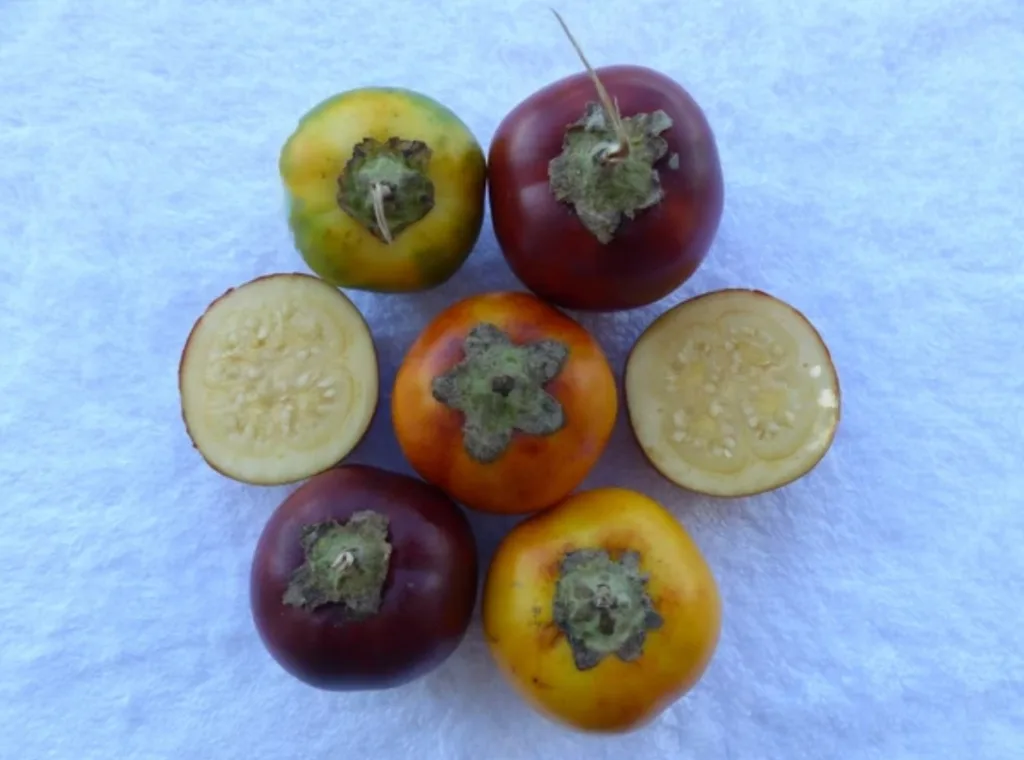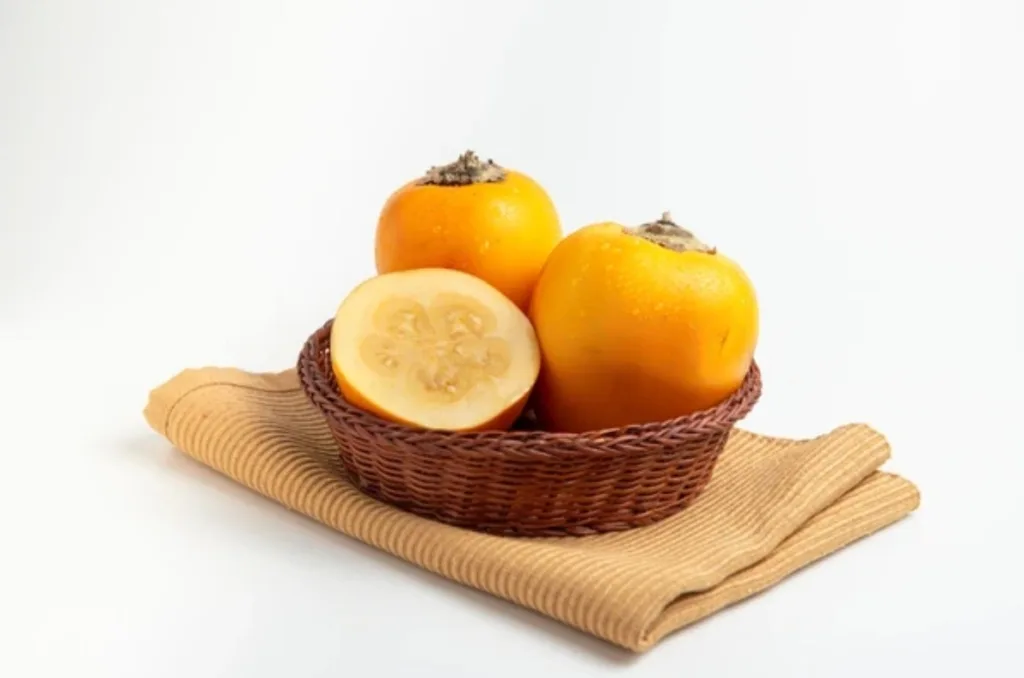What is Cocona fruit?
Cocona (Solanum sessiliflorum), a tropical fruit native to the Amazon rainforest, is gaining popularity due to its remarkable health benefits and versatile uses. Known for its vibrant orange-red hue and tangy flavor, cocona is not only a delight to the palate but also a treasure trove of nutrients. This article delves into the health benefits and various uses of cocona fruit, highlighting why it deserves a spot in your diet.
Nutritional Profile of Cocona Fruit
Cocona fruit is rich in essential vitamins and minerals, making it a nutritious addition to any diet. A 100-gram serving of cocona provides:
- Vitamin A: Crucial for maintaining healthy vision and immune function.
- Vitamin C: A powerful antioxidant that supports the immune system and promotes skin health.
- Fiber: Essential for digestive health and maintaining a healthy weight.
- Potassium: Helps regulate blood pressure and maintain proper heart function.
- Calcium: Important for strong bones and teeth.

Health Benefits of Cocona Fruit
1. Boosts Immune System
Cocona is packed with vitamin C, a key nutrient that enhances the immune system. Regular consumption of cocona can help the body fight off infections and reduce the duration of colds and flu. Vitamin C also acts as an antioxidant, protecting cells from damage caused by free radicals.
2. Promotes Digestive Health
The high fiber content in cocona aids in digestion by promoting regular bowel movements and preventing constipation. Fiber also helps maintain a healthy gut microbiome, which is crucial for overall digestive health. Including cocona in your diet can contribute to better digestive function and improved nutrient absorption.
3. Supports Cardiovascular Health
Cocona fruit is an excellent source of potassium, a mineral that plays a vital role in heart health. Potassium helps regulate blood pressure by balancing sodium levels in the body. This can reduce the risk of hypertension and related cardiovascular diseases. Additionally, the antioxidants in cocona help protect the heart by reducing oxidative stress.
4. Enhances Skin Health
Thanks to its high vitamin C content, cocona can significantly improve skin health. Vitamin C is essential for collagen production, which keeps the skin firm and elastic. Regular consumption of cocona can lead to healthier, more radiant skin. Its antioxidant properties also help combat signs of aging by neutralizing harmful free radicals.
5. Aids in Weight Management
The fiber in cocona helps promote a feeling of fullness, which can aid in weight management by reducing overall calorie intake. Additionally, cocona is low in calories and fat, making it a healthy snack option for those looking to maintain or lose weight.
6. Improves Vision
Cocona is rich in vitamin A, which is vital for maintaining good vision. Vitamin A helps protect the surface of the eye (cornea) and is essential for good night vision. Including cocona in your diet can contribute to overall eye health and prevent conditions such as night blindness.
7. Regulates Blood Sugar Levels
The natural fibers in cocona help slow down the absorption of sugar into the bloodstream, which can help regulate blood sugar levels. This makes cocona a beneficial fruit for people with diabetes or those at risk of developing diabetes. The low glycemic index of cocona means it does not cause significant spikes in blood sugar levels, making it a safe and healthy option for managing diabetes.

Culinary Uses of Cocona Fruit
Cocona’s tangy flavor and unique texture make it a versatile ingredient in various culinary applications. Here are some popular ways to incorporate cocona into your diet:
1. Fresh Consumption
Cocona can be eaten fresh, much like an apple or pear. Simply wash the fruit, slice it, and enjoy its tangy flavor as a healthy snack. It can also be added to fruit salads for an exotic twist.
2. Juices and Smoothies
Cocona makes a delicious and nutritious addition to juices and smoothies. Blend cocona with other tropical fruits like mango, pineapple, or banana to create a refreshing and vitamin-rich beverage. Adding a splash of coconut water or a handful of spinach can boost the nutritional value even further.
3. Sauces and Salsas
The tartness of cocona lends itself well to savory dishes. It can be used to make tangy sauces and salsas that pair perfectly with grilled meats, fish, or vegetables. Cocona salsa, made with diced cocona, tomatoes, onions, cilantro, and lime juice, is a flavorful topping for tacos and other Mexican dishes.
4. Jams and Preserves
Cocona’s natural pectin content makes it an excellent fruit for making jams and preserves. Cooking cocona with sugar and a bit of lemon juice results in a delicious spread that can be enjoyed on toast, pancakes, or as a filling for pastries.
5. Baked Goods
Incorporating cocona into baked goods can add a unique flavor and nutritional boost. Cocona puree can be used in muffins, cakes, and breads. Its tangy taste complements sweet and savory dishes alike, making it a versatile ingredient in baking.

Traditional and Medicinal Uses
In addition to its culinary applications, cocona has been used traditionally in Amazonian medicine for various purposes:
1. Anti-inflammatory Properties
Cocona has been used as a natural remedy for inflammation. Its anti-inflammatory compounds help reduce swelling and pain, making it beneficial for conditions like arthritis and other inflammatory diseases.
2. Diabetes Management
Some traditional medicine practices use cocona to help manage diabetes. Its low glycemic index and high fiber content help regulate blood sugar levels, making it a suitable fruit for diabetic patients.
3. Skin Treatments
Cocona pulp is often used in traditional skin treatments to soothe and heal various skin conditions. Its anti-inflammatory and antimicrobial properties make it effective for treating acne, eczema, and minor skin infections.
Conclusion
Cocona fruit is a nutritional powerhouse with numerous health benefits and versatile uses. From boosting the immune system and promoting digestive health to enhancing skin health and supporting cardiovascular function, cocona offers a wide range of benefits. Its tangy flavor and unique texture make it a delightful addition to various culinary creations. Whether consumed fresh, in juices, or incorporated into sauces and baked goods, cocona is a fruit worth exploring for its health-promoting properties and delicious taste.
By incorporating cocona into your diet, you can enjoy its numerous health benefits while adding an exotic twist to your meals. Embrace this tropical treasure and discover the wonders it can bring to your health and culinary experiences.
Topic covered
- What is cocona fruit?
- What is nutritional profile of cocona fruit?
- What are health benefits of cocona fruit?
- What are uses of cocona fruit?
- Medical uses of cocona fruit.








1 thought on “Cocona Fruit: Unveiling a Tropical Superfruit’s Health & Culinary Secrets”